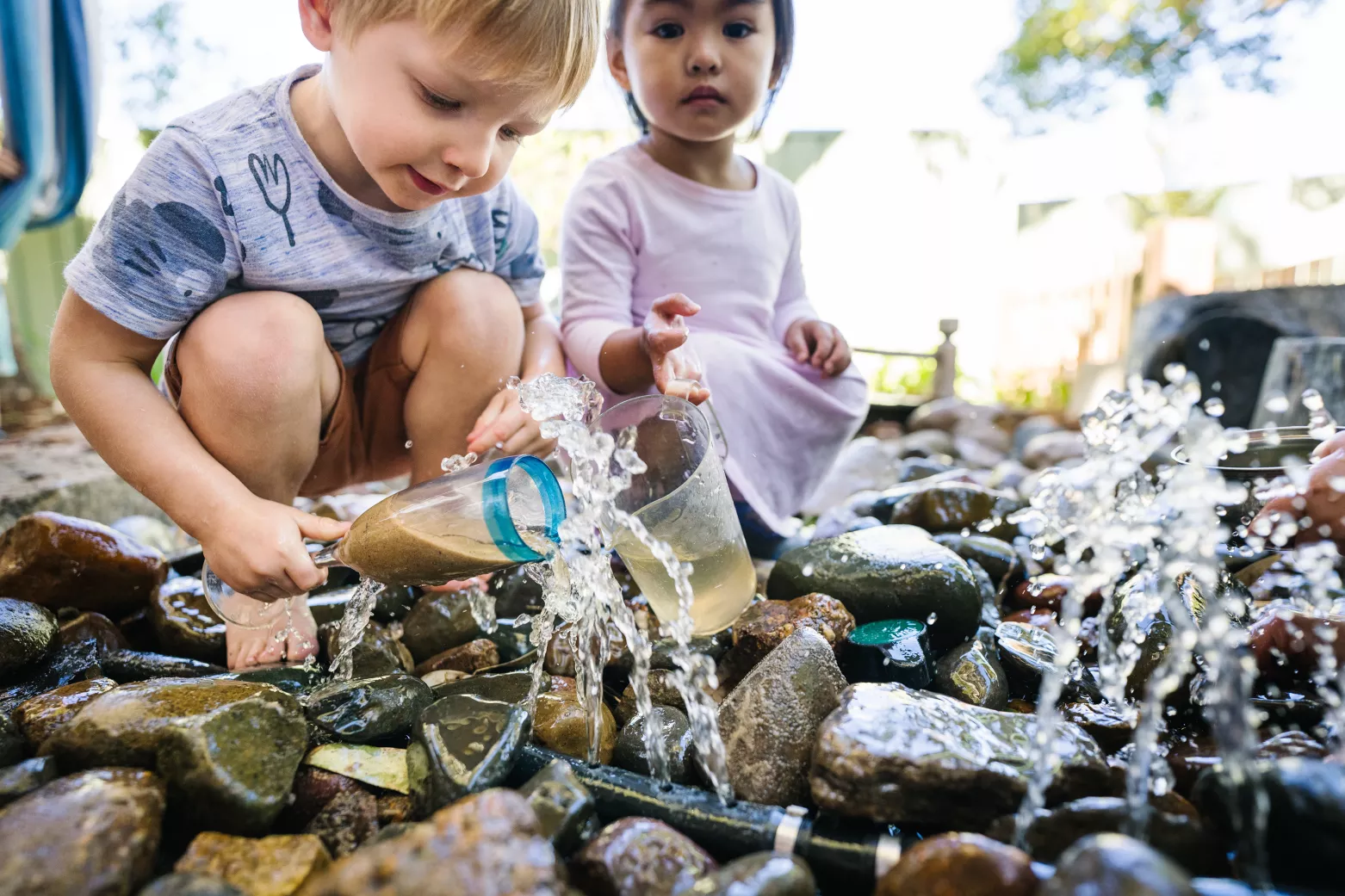- Home
- BELONGING, BEING & BECOMING - THE EARLY YEARS LEARNING FRAMEWORK
- (EYLF) INTRODUCTION
Table of contents
- BELONGING, BEING & BECOMING - THE EARLY YEARS LEARNING FRAMEWORK
- (EYLF) INTRODUCTION
- (EYLF) A VISION FOR CHILDREN'S LEARNING
- (EYLF) ELEMENTS OF THE EARLY YEARS LEARNING FRAMEWORK
- (EYLF) EARLY CHILDHOOD PEDAGOGY
- (EYLF) PRINCIPLES
- (EYLF) PRACTICES
- (EYLF) THE EARLY YEARS LEARNING FRAMEWORK PLANNING CYCLE
- (EYLF) LEARNING OUTCOMES
- (EYLF) GLOSSARY OF TERMS
- (EYLF) REFERENCES
Need help using the guide? Visit our help section.
(EYLF) INTRODUCTION
This is V2.0 of Australia’s national Early Years Learning Framework. The aim of Belonging, Being and Becoming: The Early Years Framework for Australia is to support early childhood providers, teachers and educators to extend and enrich children’s learning from birth to 5 years and through the transition to school. The Early Years Learning Framework (the Framework) draws on robust Australian and international evidence that confirms early childhood is a vital period in children’s continuing learning, development and wellbeing. It has been developed with considerable input from the early childhood sector, including children and families, approved providers and educators, other professionals, peak bodies, early childhood researchers, as well as the Australian and state and territory governments and the Australian Children’s Education and Care Quality Authority.
The Human Rights Commission describes Australia as a vibrant, multicultural country. “We are home to the world’s oldest continuous cultures, as well as Australians who identify with more than 270 ancestries” (Australian Human Rights Commission, 2019).
In recognition of this, and the guiding principles of the National Quality Framework, the Early Years Learning Framework contributes to the realisation of Goal 1 and 2 of the Alice Springs (Mparntwe) Education Declaration (Education Council 2019 p. 4) that:
Goal 1: The Australian education system promotes excellence and equity. Goal 2: All young Australians become:
|
|---|
The Alice Springs (Mparntwe) Education Declaration commits governments to ensuring all children learn about the diversity of Aboriginal and Torres Strait Islander cultures, and to seeing all Aboriginal and Torres Strait Islander children thrive in their education and all facets of life. Contributing to this goal, the National Agreement on Closing the Gap, led by the Coalition of Aboriginal and Torres Strait Islander Organisations and all Australian governments, identifies early childhood education, care and development as a national policy priority. Furthermore, it commits to ensuring all Aboriginal and Torres Strait Islander children are engaged in high quality, culturally appropriate early childhood education in their early years. Early childhood education has a critical role to play in delivering this outcome and advancing Reconciliation in Australia.
As part of the National Quality Framework, the Early Years Learning Framework supports the objectives and principles of the National Law and Regulations including the National Quality Standard. Recognising children as competent and capable learners who have rights and agency, the Framework has a specific emphasis on play-based learning and the intentional role played by both educators and children in extending and enriching learning. The Framework identifies a shared Vision for children’s learning, Principles and Practices to underpin learning and teaching and the 5 Learning Outcomes. Together these elements inform the professional work of early childhood teachers and educators. The Framework has been designed for use by early childhood educators, early childhood teachers1 and approved providers working in partnership with children, families, other professionals, schools and community members to inform educational programs and practices that are place-based and relevant to that community.

Educators guided by the Framework will reinforce in their daily practice the principles laid out in the United Nations Convention on the Rights of the Child (the Convention) (United Nations 1989). The Convention states that all children have the right to an education that lays a foundation for the rest of their lives, maximises their ability, and respects their family, cultural and other identities and languages. The Convention also recognises children’s right to play and be active participants in all matters affecting their lives. Underpinned by a child-rights approach, the Framework supports implementation of the National Principles for Child Safe Organisations (Australian Human Rights Commission 2018). It also promotes children’s safety, wellbeing and responsibilities as active citizens.
This document may complement or supplement individual state and territory frameworks. The exact relationship will be determined by each jurisdiction. Over time additional resources may be developed to support the application of this Framework.
1 Early childhood teachers and educators are early childhood professionals who work directly with children in early childhood settings and from now on will be referred to as educators.